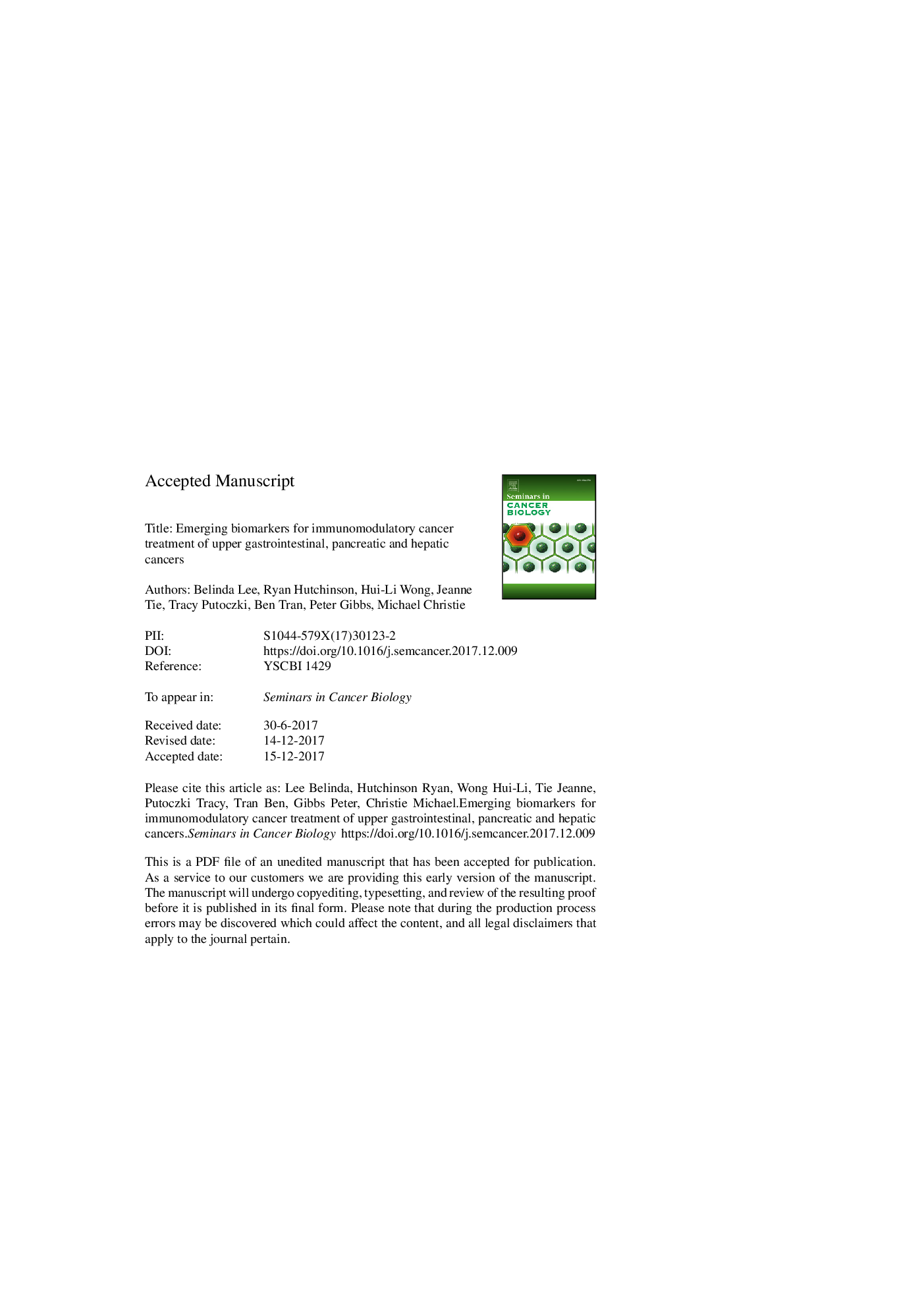| Article ID | Journal | Published Year | Pages | File Type |
|---|---|---|---|---|
| 10157004 | Seminars in Cancer Biology | 2018 | 37 Pages |
Abstract
Carcinomas of the oesophagus, stomach, pancreas and liver are common and account for a disproportionately high number of cancer deaths. There is a need for new treatment options for patients with advanced disease. Immunomodulatory treatments including immune checkpoint blockade offer a promising new approach, with efficacy shown in other solid tumour types. However, only a small proportion of patients with carcinomas of the oesophagus, stomach, pancreas and liver have responded to single agent checkpoint inhibitors, and there is a need for markers that are predictive of response to guide treatment of individual patients. Predictive markers may include epidemiological factors such as ethnicity, the genomic status of the tumour, circulating markers, expression of immune checkpoint molecules, and other features of the stromal/immune response at the site of the tumour. This review will focus on predictive biomarkers for immune checkpoint blockade in oesophageal, gastric, pancreatic and hepatocellular carcinomas, including the genomic context and immune landscape in which they occur. Pancreatic carcinomas are largely resistant to immune checkpoint inhibition in trials to date, therefore emerging immunomodulatory treatments in this tumour type are also reviewed.
Related Topics
Life Sciences
Biochemistry, Genetics and Molecular Biology
Biochemistry
Authors
Belinda Lee, Ryan Hutchinson, Hui-Li Wong, Jeanne Tie, Tracy Putoczki, Ben Tran, Peter Gibbs, Michael Christie,
